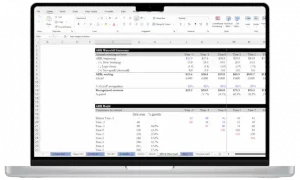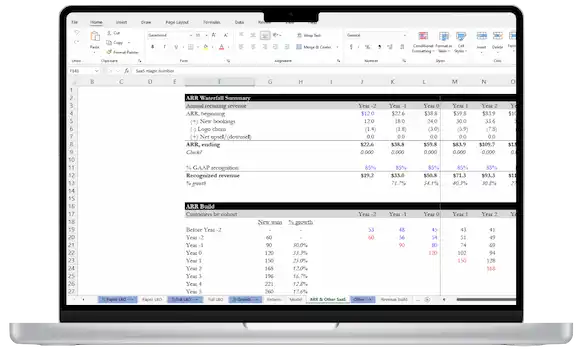Investment banking is a highly competitive and lucrative field that attracts top talent worldwide.
It is a challenging and dynamic industry that requires a unique combination of analytical and interpersonal skills and a deep understanding of financial markets and global economic trends.
As an aspiring investment banker, this industry’s opportunities are exciting!
Read on further to understand the investment banking recruitment process and how you can put your best foot forward.
What is the Investment Banking Recruiting Process?
The investment banking recruiting process refers to networking and interviewing by candidates who are seeking internship or full-time job offers at investment banks.
These positions are in high demand.
Banks do not need to do much to “attract” people because investment banking is a well-paid, prominent, and competitive sector; in a year, over 100,000 individuals may compete for a small number of positions globally.
In this way, you can consider the “recruitment process” to be more of a “selection process” where banks select candidates from a wide pool of qualified applicants.
The recruiting process for full-time roles and internships are interlinked in that most full-time roles are offered to those who successfully attain (and perform well) in an internship. Historically, the offer rate for interns is quite high (70%+).
Investment Banking Recruiting Timeline
Although each bank will have a slightly different schedule, the investment banking hiring cycle generally occurs around the same time each year.
Most investment banks conduct full-time analyst and associate recruitment, interviews, and hiring during the Fall of each academic year.
Additionally, a growing proportion of full-time job openings are going to candidates who completed internships the summer before.
- Undergraduate: American banks hire for junior year summer internships over a year in advance; interviews occur in Spring of sophomore year. That means you’ll need to have gained some internship experience, as well as maintained great grades, by that point.
- MBA: Usually investment banks will start the summer internship recruiting process for MBAs just a few months after the program begins (Fall of first year); this will usually involve lots of “networking” and “informational sessions” on campus, and it will culminate in interviews
- Off-cycle or lateral hiring: Banks interview opportunistically for roles that open up on an “as needed” basis; this typically occurs when someone abruptly departs or a new need on the team opens up.
Investment Banking Full-time Recruiting
In the US, most investment banks begin hiring students for full-time roles in August or September. This is true for both MBA and undergrad roles.
This hiring will be for positions that would start nearly 1 year later (in the summer of the next year).
Often, the deadlines and timing in Europe and other regions are slightly later (and less regimented) compared to the U.S. dates listed above.
All this could vary slightly depending on your school. Check with your career centers to see when firms are coming to campus.
Investment banking internship recruiting
The best strategy to get a full-time analyst or associate role in investment banking is usually to get an internship and then get a return offer for full time.
Banks usually view the summer internship as a “tryout” for the full-time role, and oftentimes the offer rate for interns is very robust (70%+), barring a bad macro environment.
This is true for both analyst and associate internship roles.
Undergrad investment banking internships
Each year, it seems that undergrad interview timelines for internship roles creep earlier and earlier.
I don’t make the rules; I just report on them. Sigh…
Nowadays, undergrads interview for junior summer internships during the Spring of their sophomore year. If investment banks recruit on your campus, this may mean that they require applications during fall.
For students, this means you really need to focus on getting a great internship after your freshman year. You also need to get amazing grades your freshman year. (On the plus side, it’s only one year where your grades really count!)
MBA investment banking internship
For MBAs, you’ll start networking with banks and do informational sessions nearly as soon as you get to campus in your 1st year. This starts a monthslong courtship process where you’ll get to know different firms and different teams within firms.
While banks sometimes recruit on a first-come, first-served basis, internship applications are typically due mid-to-late November through December.
It culminates with MBA internship interviews in January of your 1st year. Below is a sample recruitment schedule from NYU’s Stern MBA program:
Investment Banking Off-Cycle Recruiting
Small and mid-market investment banks interview candidates less formally.
These firms typically conduct interviews year-round since they frequently employ on-demand.
In this case, the easiest way to characterize the timing is “random,” which often refers to the need-based hiring practice of investment banks.
Monitor job boards and keep connectivity with recruiters to have the best opportunity to grab an off-cyle or lateral role.
Timing is everything!

- 24 lessons
- 6+ video hours
- Expert instructor
ONLINE COURSE
Assess Business Models Like An Investor
Designed for aspiring private equity, growth, or venture investors
Investment Banking MBA Recruiting
There are a few significant distinctions if you’re using a business school to enter the investment banking field.
The United States has a far more developed MBA-level recruiting industry compared to other countries. Banks continue to employ students from prestigious European universities like INSEAD and LBS, but the practice is more common in the United States.
To get admitted, you still need relevant experience. There isn’t enough time in the months leading up to interviews to “reinvent yourself” or undergo a significant change. You will require interesting and valuable “stepping-stone” experiences before business school to improve your prospects and show you have high potential (even if you haven’t done finance yet).
Further, at the MBA level, firms view your role as a “career track” position. This means there’s an expectation that you’ll stay and build your career there, as opposed to analyst programs, which are explicitly designed to be two-year programs (though this is changing somewhat).
Given this dynamic, banks invest the time to really get to know candidates at the MBA level (via networking and informational events) and want to feel certain that there’s a good mutual fit in terms of personality and interests.
How to Succeed in Investment Banking Recruiting
There are a few key elements to succeeding in investment banking recruiting.
At a high level, I’d summarize with the following steps:
- Get an internship to get a full time role
- Great resume is required, but standout for an internship by doing lots of networking
- It helps to be focused from Day 1 since recruiting starts early (for both undergrad and MBA recruiting)
- Go for an “off-cycle” internship if you can to bolster your resume
- Interviews matter; make sure you nail them!
Get the qualifications
Banks will hire from non-target schools, but you can’t get around it – they definitely care a lot about the quality of your prior experience and achievements.
If you can, you should enroll in an excellent undergraduate institution and get amazing grades. Banks are looking for high (3.7+) GPAs. It’s not impossible if you have a lower GPA, but you should really aim for as high as possible!
You don’t typically have to major in economics, business, or accounting, but it doesn’t hurt! Your major is typically less of a factor in your candidacy if you come from a great, core school.
If you’re coming from a non-target school, you should endeavor to have a 4.0 GPA and major in the most relevant major you can (e.g. corporate finance, accounting, economics, etc.).
If you’re an MBA candidate, you don’t need to have finance or even business experience. What matters if showing you’ve worked in ambitious, high achievement jobs. Ideally, your prior jobs will play a part in why you want to do banking and what sector you want to focus on.
begin your initial internships and networking activities early (i.e., in Year 1) if you want the highest chance of receiving job offers from investment banking.
Do your networking
Investment banking is a “hustle industry” and “hustle” is what they are looking to hire.
So how do you show “hustle”?
Networking.
This is the most crucial factor in standing out.
Yes, you need to have the qualifications, but in addition to having excellent credentials and passing interviews, you need to network to demonstrate your grit.
This entails proactively contacting investment bankers, having conversations, and maintaining contact.
If a banker begins to open up and share interesting details during a networking conversation, it is one sign that you are on the correct route.
These are AMAZING to use as examples in interviews (e.g., “Why investment banking?”) and networking in the future to demonstrate that you’ve put in the work and hustle.
Making the bankers feel valued and unique is another tactic. To demonstrate your significant enthusiasm and zeal, tell them their team is your first option (but only if it is) and make an effort to speak with as many team members as you can.
Even bankers can be flattered!
There are several methods to go about networking, but contacting bankers approximately six months before the interview process is an intelligent way to begin.
Each bank (and school) has a distinct recruitment cycle, so make sure to find out when it usually starts.
You may find connections through LinkedIn or your alum network. After you make initial contact, follow up when interviews are approaching and remind them that you’ve applied.
Ace your interviews
As with any job, a critical step to succeeding in the investment banking recruiting process is nailing the interview.
This is your moment to demonstrate to the bank that you have worked hard by preparing for the technical and behavioral interview through networking.
Investment banks will often get in touch with you for a brief “phone screen” interview, which is a 30-minute one-on-one session with a banker or recruiter from the company. In this conversation, the questions will typically be about your history and interest in the firm (e.g. getting to know you questions).
If you are selected, you may have another formal interview, comparable to the phone screen interview. Once more, if you succeed in this interview, the bank will probably invite you to a “Superday” interview.
The Superday interview may consist of three to seven back-to-back interviews with several bank bankers. These interviewees might be of various levels of seniority and affiliation. Usually the Superday interview will be conducted in person at the bank’s closest regional headquarters.
Usually, each interview will have a different area of focus. For instance, if you have three interviews, one may be more behavioral, one more technical, and one might be a case study.
All of your interviews can take a few days to a month, with an average of about two weeks. The timeframe for these interviews varies, but historically you should expect it to take that long. Any competing offers with a shorter deadline should be communicated to the recruitment team.
Review the investment banking primer to learn more and ace that interview.


 Break Into Growth Equity
Break Into Growth Equity

